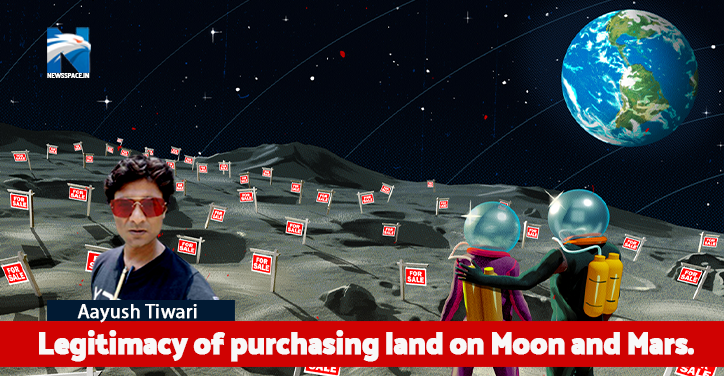
|
Getting your Trinity Audio player ready...
|
The No Man’s Land Acquisition Act.
The idea of purchasing land on the moon may seem like something out of a science fiction novel, but with the advancements in space technology, it is becoming a reality. However, the question of whether it is legal to buy land on the moon, or even on other celestial bodies such as Mars, remains a topic of debate. In this essay, we will examine the laws that govern purchasing land on the moon, the concept of ‘no man’s land,’ and the legitimacy of such transactions under international law.
Currently, there is no specific law that governs the buying and selling of land on the moon. The Outer Space Treaty of 1967, which has been ratified by 109 countries, states that the moon and other celestial bodies are the ‘common heritage of mankind’ and cannot be owned by any individual or country (Article II). This treaty was created as a means to prevent any one nation from claiming ownership of outer space and to promote the peaceful use of space for the benefit of all humankind.
Under this treaty, any individual or country may explore and use outer space, including the moon and other celestial bodies, but they cannot claim sovereignty over any part of it (Article I). This means that even if an individual or country were to purchase land on the moon, they would not have any legal claim to it as per the Outer Space Treaty.
Moreover, the concept of ‘no man’s land’ also applies to the moon. No man’s land refers to an area that is not owned or controlled by any government or individual. This concept is commonly applied to unclaimed territories on Earth, such as Antarctica. Similarly, the moon, being a celestial body that is not owned by any country, can also be considered a no man’s land.
Some may argue that the lack of specific laws governing land ownership on the moon allows for individuals or countries to purchase land on it. However, this argument is flawed as it goes against the principle of ‘Pacta sunt servanda,’ which means ‘agreements must be kept.’ This principle is a fundamental tenet of international law and states that parties to an agreement must fulfill their obligations in good faith. In this case, the Outer Space Treaty is a binding agreement between countries, and therefore, any transaction that goes against its provisions would be considered a violation of international law.
In addition to the legal implications, the idea of purchasing land on the moon, or any other celestial body, raises ethical concerns. As a species, we have already caused significant harm to our own planet through deforestation, global warming, and the extinction of species. The idea of buying land on the moon or Mars, as a means of escaping the consequences of our actions on Earth, is a reflection of our failure to take responsibility for our actions. Instead of investing in sustainable practices and preserving our own planet, we are looking to exploit and colonize other worlds.
The current laws and principles of international law do not allow for the purchase of land on the moon or any other celestial body. The Outer Space Treaty, which is a binding agreement between countries, prohibits the ownership of outer space, and the concept of ‘no man’s land’ further supports this notion. Moreover, the idea of buying land on the moon raises ethical concerns and goes against the principle of ‘Pacta sunt servanda.’ Instead of looking to escape our problems by colonizing other worlds, we should focus on preserving and protecting our own planet.





